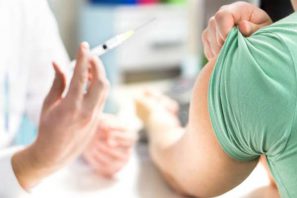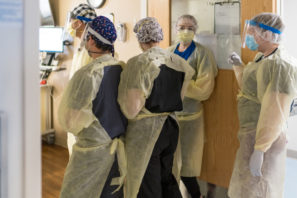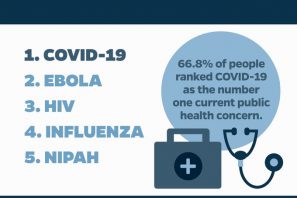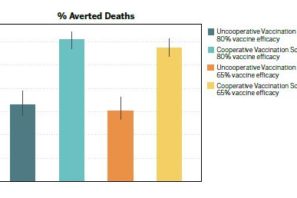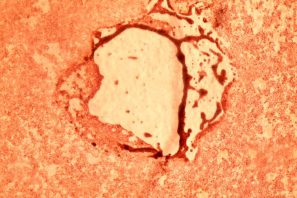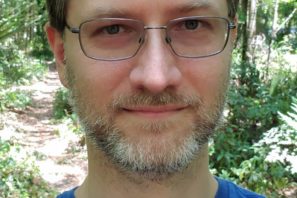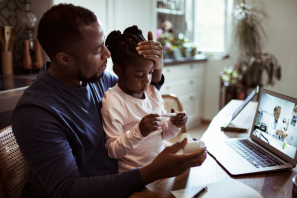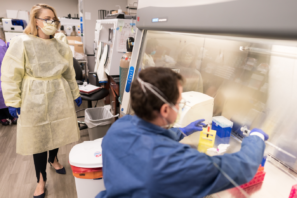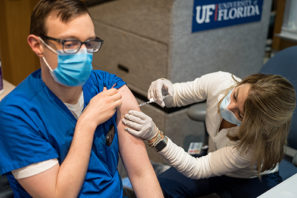A UF team of infectious disease experts propose a core protocol for such vaccination trials.
Convalescent plasma does not effectively prevent the progression of COVID-19 from a mild to severe form of the disease in high-risk patients, according to the results of a national clinical trial that involved University of Florida Health.
80 percent of respondents indicated they would get a vaccine for COVID-19 if it were available
Seven University of Florida neuroscientists have earned Brain and Spinal Cord Injury Research Trust Bridge Funds.
Which global distribution strategy for a hypothetical COVID-19 vaccine will save the most lives?
A trio of interdisciplinary UF researchers are searching for genes that either hasten or thwart the growth of SARS-CoV-2 virus inside a human host. Their results may contribute to the search for a COVID-19 drug or therapeutic arsenal.
Dr. Tom Hladish, research scientist in the Department of Biology and EP, was called upon by the Florida Department of Health (DOH) to advise on its COVID-19 response.
The University of Florida College of Medicine’s department of pediatrics has been awarded a nearly $1 million federal grant to expand telemedicine services and equipment among underserved and vulnerable populations.
UF Researchers will begin evaluating whether hydroxychloroquine can prevent COVID-19 infections.
Combining an anti-inflammatory drug with an antiviral drug reduces recovery time and accelerates improvement for COVID-19 patients, a national study co-authored by UF Health researchers has found.
people, however, soon discover the microscopic invader won’t allow them to return to their normal lives even months after infection. It’s an especially insidious side of the coronavirus that makes vaccination all the more important — COVID-19 as chronic illness.
The leading COVID-19 vaccines aren’t anything like the polio vaccination your grandparents received — or even the flu shot you got this fall.

